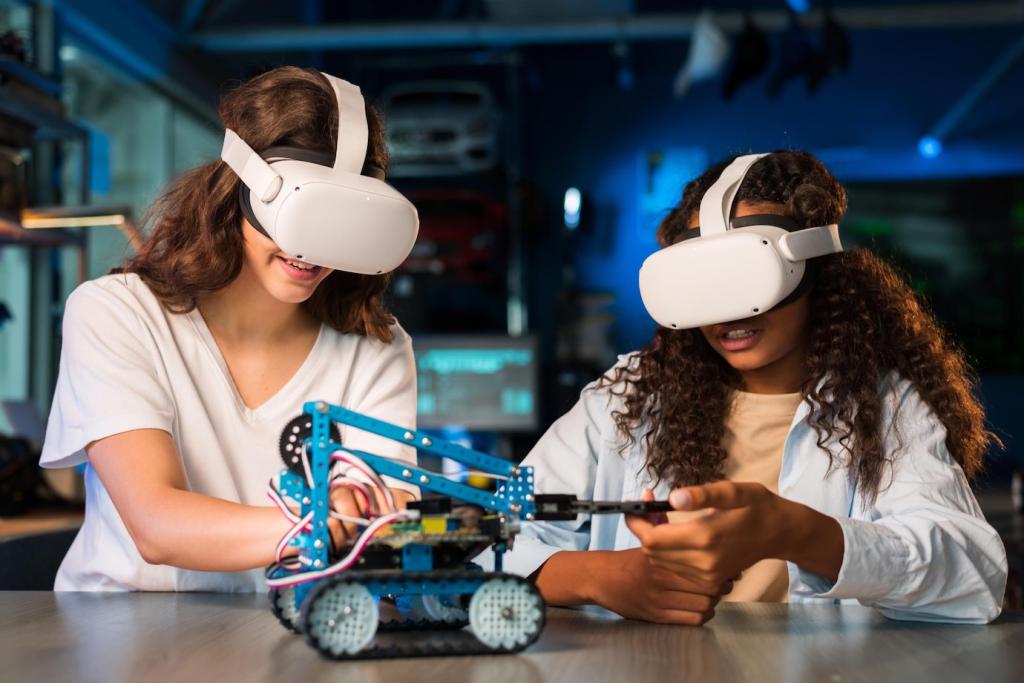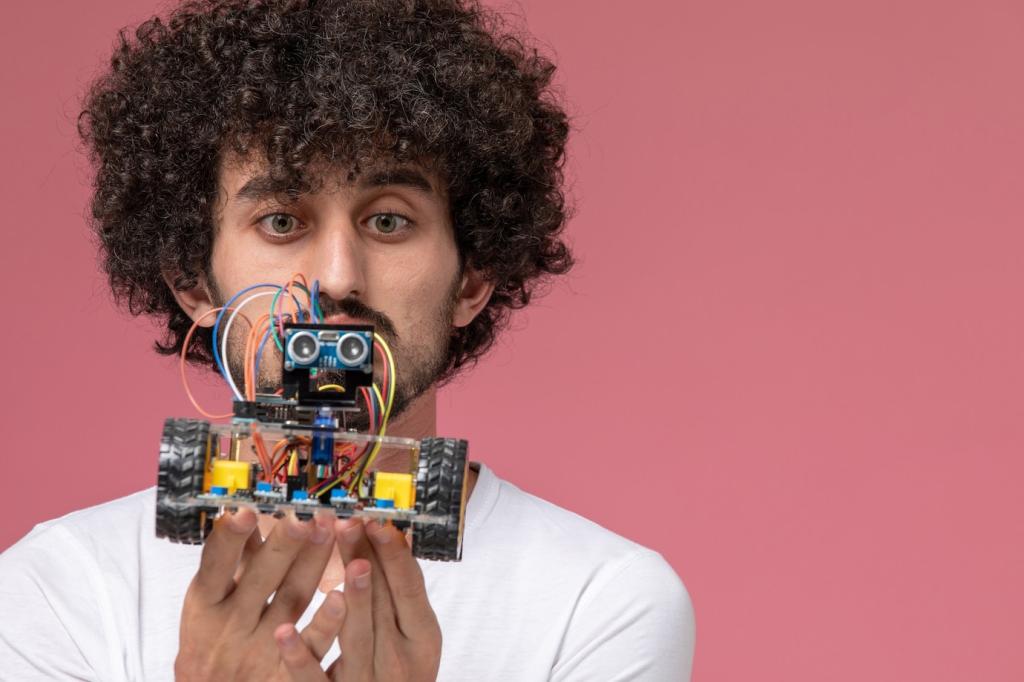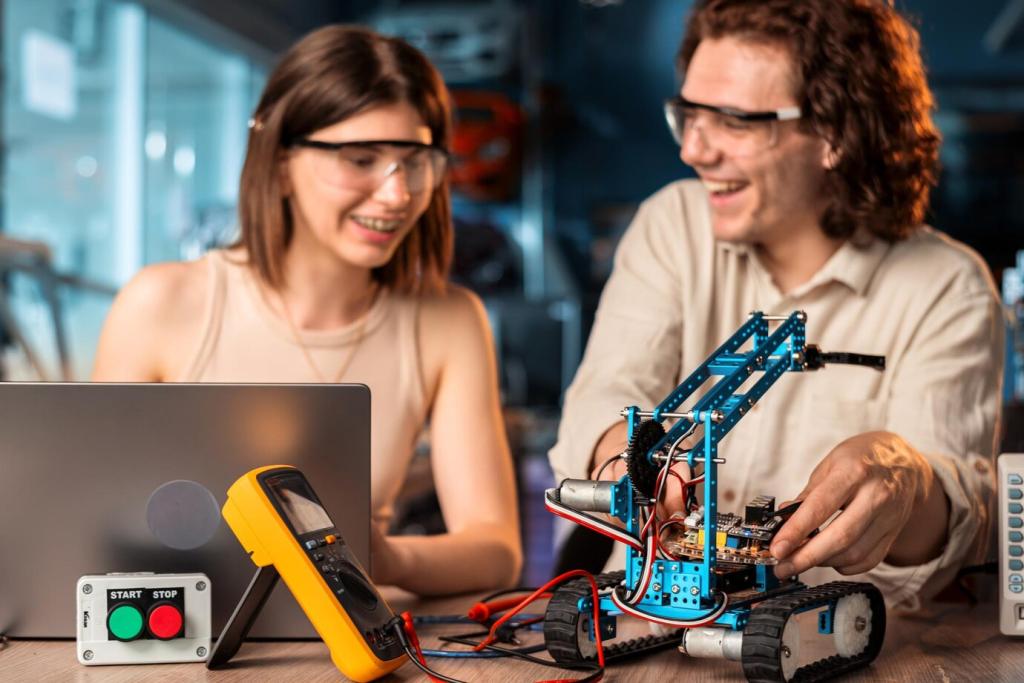Designing Projects That Stick
Convert wheel circumference into distance traveled, calculate gear ratios, and connect acceleration to motor power. Let students predict outcomes, test on the floor, then reconcile differences. Post results, graphs, and photos, inviting peers to challenge assumptions and refine models collaboratively.
Designing Projects That Stick
Have robots model natural phenomena: simulating pollination, tracking light like sunflowers, or balancing like inverted pendulums. Pair each experiment with a narrative explaining the science to younger students. Clarity grows when learners teach, and stories help the data speak human.




